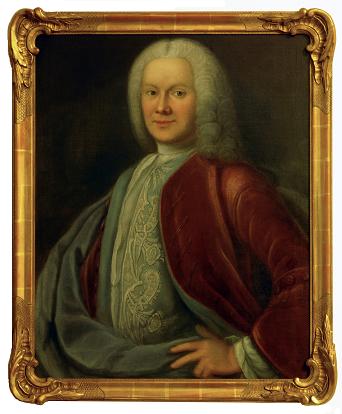|
Hugo Lagercrantz
Carl Hugo Lagercrantz (born 18 April 1945) is a Swedish pediatrician. He is Professor Emeritus of Pediatrics at the Karolinska Institute and is a former member of both the Nobel Assembly at the Karolinska Institute, which awards the Nobel Prize in Physiology or Medicine, and the assembly's five-member working body, the Nobel Committee for Physiology or Medicine. He has also formerly been President of the Swedish Pediatric Society and the European Society for Pediatric Research. Since 2005 he has been editor-in-chief of '' Acta Paediatrica''.Hugo Lagercrantz Karolinska Institute Lagercrantz was appointed professor of pediatrics at Karolinska Institute in 1989 and was director of the Neonatal Programme at the Astrid Lindgren Children's Hospital a ... [...More Info...] [...Related Items...] OR: [Wikipedia] [Google] [Baidu] |
Pediatrician
Pediatrics ( also spelled ''paediatrics'' or ''pædiatrics'') is the branch of medicine that involves the medical care of infants, children, adolescents, and young adults. In the United Kingdom, paediatrics covers many of their youth until the age of 18. The American Academy of Pediatrics recommends people seek pediatric care through the age of 21, but some pediatric subspecialists continue to care for adults up to 25. Worldwide age limits of pediatrics have been trending upward year after year. A medical doctor who specializes in this area is known as a pediatrician, or paediatrician. The word ''pediatrics'' and its cognates mean "healer of children," derived from the two Greek words: (''pais'' "child") and (''iatros'' "doctor, healer"). Pediatricians work in clinics, research centers, universities, general hospitals and children's hospitals, including those who practice pediatric subspecialties (e.g. neonatology requires resources available in a NICU). History The earlie ... [...More Info...] [...Related Items...] OR: [Wikipedia] [Google] [Baidu] |
Karolinska Institute
The Karolinska Institute (KI; sv, Karolinska Institutet; sometimes known as the (Royal) Caroline Institute in English) is a research-led medical university in Solna within the Stockholm urban area of Sweden. The Karolinska Institute is consistently ranked amongst the world's best medical schools, ranking 6th worldwide for medicine in 2021. The Nobel Assembly at the Karolinska Institute awards the Nobel Prize in Physiology or Medicine. The assembly consists of fifty professors from various medical disciplines at the university. The current rector of Karolinska Institute is Ole Petter Ottersen, who took office in August 2017. The Karolinska Institute was founded in 1810 on the island of Kungsholmen on the west side of Stockholm; the main campus was relocated decades later to Solna, just outside Stockholm. A second campus was established more recently in Flemingsberg, Huddinge, south of Stockholm. The Karolinska Institute is Sweden's third oldest medical school, after Uppsala ... [...More Info...] [...Related Items...] OR: [Wikipedia] [Google] [Baidu] |
Nobel Assembly At The Karolinska Institute
The Nobel Assembly at the Karolinska Institute is a body at Karolinska Institute which awards the Nobel Prize in Physiology or Medicine. It is headquartered in the Nobel Forum on the grounds of the Karolinska Institute campus. Originally the Nobel Assembly was not a formal body but rather the collective of all professors (holders of chairs, i.e. full professors) at Karolinska Institute. In 1977 the Nobel Assembly became a separate private organization hosted by Karolinska Institute. Until 1984 all Karolinska Institute professors belonged to the Assembly; from 1984 the membership is restricted to 50 Karolinska Institute professors.Karolinska Institutet: ''Nobelpriset - den ärofyllda traditionen'' accessed on August 3, 2009 The main work involved in collecting nominations and screening no ... [...More Info...] [...Related Items...] OR: [Wikipedia] [Google] [Baidu] |
Nobel Prize In Physiology Or Medicine
The Nobel Prize in Physiology or Medicine is awarded yearly by the Nobel Assembly at the Karolinska Institute for outstanding discoveries in physiology or medicine. The Nobel Prize is not a single prize, but five separate prizes that, according to Alfred Nobel's 1895 will, are awarded "to those who, during the preceding year, have conferred the greatest benefit to humankind". Nobel Prizes are awarded in the fields of Physics, Chemistry, Physiology or Medicine, Literature, and Peace. The Nobel Prize is presented annually on the anniversary of Alfred Nobel's death, 10 December. As of 2022, 114 Nobel Prizes in Physiology or Medicine have been awarded to 226 laureates, 214 men and 12 women. The first one was awarded in 1901 to the German physiologist, Emil von Behring, for his work on serum therapy and the development of a vaccine against diphtheria. The first woman to receive the Nobel Prize in Physiology or Medicine, Gerty Cori, received it in 1947 for her role in elucidati ... [...More Info...] [...Related Items...] OR: [Wikipedia] [Google] [Baidu] |
Nobel Committee For Physiology Or Medicine
The Nobel Committee for Physiology or Medicine is the Nobel Committee responsible for proposing laureates for the Nobel Prize for Physiology or Medicine.Nobelprize.org: The Nobel Committee for Physiology or Medicine accessed 2010-06-19 The Nobel Committee for Physiology or Medicine is appointed by the , a body of 50 members at which is formally a separate body not part of the instit ... [...More Info...] [...Related Items...] OR: [Wikipedia] [Google] [Baidu] |
Acta Paediatrica
''Acta Paediatrica'' is a monthly peer-reviewed medical journal covering paediatrics. It is published by Wiley-Blackwell on behalf of the Foundation Acta Paediatrica, based at the Karolinska Institute in Sweden. History The journal was established in 1921 and renamed ''Acta Paediatrica Scandinavica'' in 1964, returning to its original title in 1992. The journal was conceived as a general pediatrics journal and its original aim was to "give studies from the Nordic countries a worldwide audience." Thus the journal was originally trilingual, publishing papers in English, German, and French, at a time when most medical journals were still published in national languages; the journal later became an English-only journal. Since Rolf Zetterström became editor in the 1960s, the journal increasingly also published studies from outside the Nordic countries. At the end of Zetterström's tenure as editor in the early 2000s, nearly two thirds of papers were authored by non-Nordic researchers. ... [...More Info...] [...Related Items...] OR: [Wikipedia] [Google] [Baidu] |
Karolinska University Hospital
The Karolinska University Hospital ( sv, Karolinska universitetssjukhuset) is a teaching hospital affiliated with Karolinska Institutet in Stockholm, Sweden, with two major sites in the municipalities of Solna and Huddinge. The hospital network is the second largest in Sweden, after Sahlgrenska University Hospital. The present day Karolinska University Hospital is the result of a 2004 merger between the former Huddinge University Hospital (''Huddinge universitetssjukhus'') in Huddinge, south of Stockholm, and the Karolinska Hospital (''Karolinska sjukhuset'') in Solna, north of Stockholm. The new hospital has about 15,000 employees and 1,340 patient beds. The Karolinska University Hospital is closely affiliated with the Karolinska Institutet. It incorporates the Astrid Lindgren Children's hospital in Solna and the Children's Hospital in Huddinge. The Karolinska University Hospital in Solna is being replaced by the New Karolinska Solna University Hospital. New Karolinska Solna ... [...More Info...] [...Related Items...] OR: [Wikipedia] [Google] [Baidu] |
Swedish Nobility
The Swedish nobility ( sv, Adeln eller Ridderskapet och Adeln) has historically been a legally and/or socially privileged class in Sweden, and part of the so-called ''frälse'' (a derivation from Old Swedish meaning ''free neck''). The archaic term for nobility, ''frälse'', also included the clergy, a classification defined by tax exemptions and representation in the diet (the Riksdag). Today the nobility does not maintain its former legal privileges although family names, titles and coats of arms are still protected. The Swedish nobility consists of both "introduced" and "unintroduced" nobility, where the latter has not been formally "introduced" at the House of Nobility (''Riddarhuset''). The House of Nobility still maintains a fee for male members over the age of 18 for upkeep on pertinent buildings in Stockholm. Belonging to the nobility in present-day Sweden may still carry some informal social privileges, and be of certain social and historical significance particularly am ... [...More Info...] [...Related Items...] OR: [Wikipedia] [Google] [Baidu] |
Gustaf Lagercrantz
Gustav, Gustaf or Gustave may refer to: * Gustav (name), a male given name of Old Swedish origin Art, entertainment, and media * ''Primeval'' (film), a 2007 American horror film * ''Gustav'' (film series), a Hungarian series of animated short cartoons * Gustav (''Zoids''), a transportation mecha in the ''Zoids'' fictional universe *Gustav, a character in ''Sesamstraße'' *Monsieur Gustav H., a leading character in ''The Grand Budapest Hotel'' Weapons *Carl Gustav recoilless rifle, dubbed "the Gustav" by US soldiers *Schwerer Gustav, 800-mm German siege cannon used during World War II Other uses *Gustav (pigeon), a pigeon of the RAF pigeon service in WWII *Gustave (crocodile), a large male Nile crocodile in Burundi * Gustave, South Dakota * Hurricane Gustav (other), a name used for several tropical cyclones and storms *Gustav, a streetwear clothing brand See also * Gustav of Sweden (other) * Gustav Adolf (other) * Gustave Eiffel (other) * * * ... [...More Info...] [...Related Items...] OR: [Wikipedia] [Google] [Baidu] |
Nils Rosén Von Rosenstein
Nils Rosén von Rosenstein (11 February 1706 – 16 July 1773) was a Swedish physician. He is considered the founder of modern pediatrics, while his work ''The diseases of children, and their remedies'' is considered to be "the first modern textbook on the subject". Career Nils Rosén was born in Sexdrega, Västra Götaland County in 1706. Son of the vicar Erich Rosenius and of Anna Wekander, he studied at the Gymnasium of Gothenburg and when he was 16 years old at Lund University under Kilian Stobaeus, and in Uppsala. In 1727, he was appointed as a lecturer at the Uppsala University, replacing Petrus Martin who had recently died. Rosén had already worked as an assistant to professor Olof Rudbeck at the time. But he couldn't take up this position until 1731, spending those four years traveling and studying abroad in Germany, Italy, France, and the Netherlands, where he studied for a while under Friedrich Hoffmann, Herman Boerhaave and Pieter van Musschenbroek. He stayed for a ... [...More Info...] [...Related Items...] OR: [Wikipedia] [Google] [Baidu] |
Swedish Pediatricians
Swedish or ' may refer to: Anything from or related to Sweden, a country in Northern Europe. Or, specifically: * Swedish language, a North Germanic language spoken primarily in Sweden and Finland ** Swedish alphabet, the official alphabet used by the Swedish language * Swedish people or Swedes, persons with a Swedish ancestral or ethnic identity ** A national or citizen of Sweden, see demographics of Sweden ** Culture of Sweden * Swedish cuisine See also * * Swedish Church (other) * Swedish Institute (other) * Swedish invasion (other) * Swedish Open (other) {{disambig Language and nationality disambiguation pages ... [...More Info...] [...Related Items...] OR: [Wikipedia] [Google] [Baidu] |
Academic Staff Of The Karolinska Institute
An academy (Attic Greek: Ἀκαδήμεια; Koine Greek Ἀκαδημία) is an institution of secondary or tertiary higher learning (and generally also research or honorary membership). The name traces back to Plato's school of philosophy, founded approximately 385 BC at Akademia, a sanctuary of Athena, the goddess of wisdom and skill, north of Athens, Greece. Etymology The word comes from the ''Academy'' in ancient Greece, which derives from the Athenian hero, ''Akademos''. Outside the city walls of Athens, the gymnasium was made famous by Plato as a center of learning. The sacred space, dedicated to the goddess of wisdom, Athena, had formerly been an olive grove, hence the expression "the groves of Academe". In these gardens, the philosopher Plato conversed with followers. Plato developed his sessions into a method of teaching philosophy and in 387 BC, established what is known today as the Old Academy. By extension, ''academia'' has come to mean the accumulation, dev ... [...More Info...] [...Related Items...] OR: [Wikipedia] [Google] [Baidu] |






